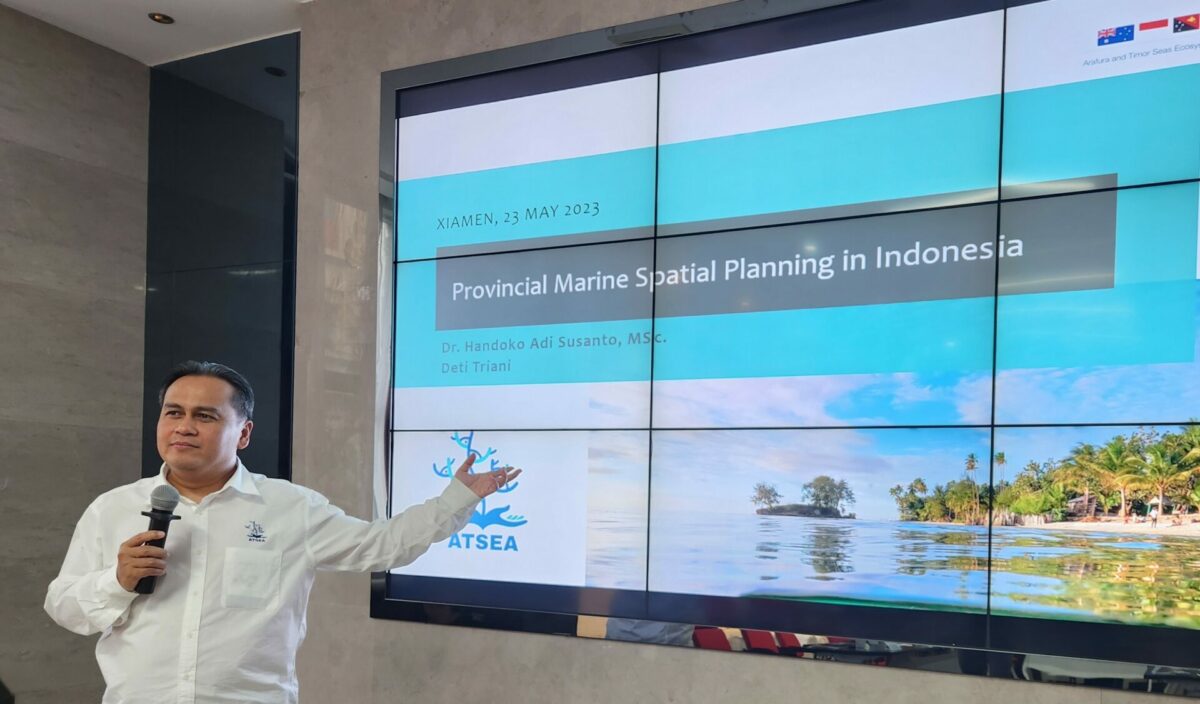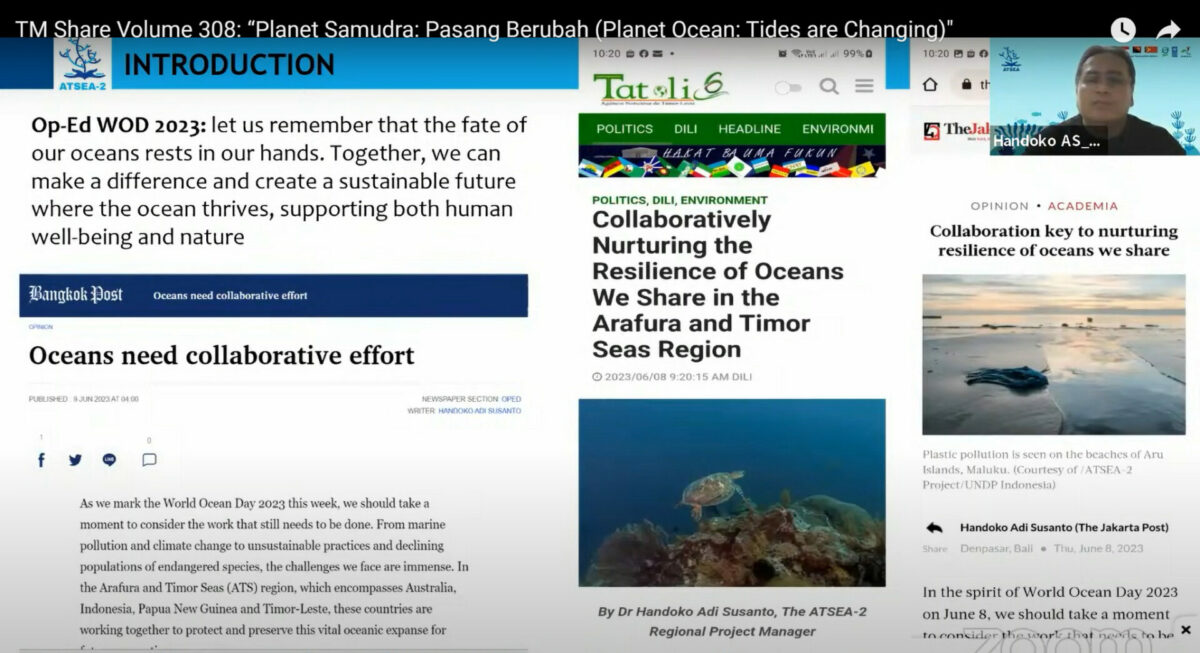The ATSEA-2 Project is focused on protecting the Arafura and Timor Seas (ATS) region for the benefit of people and nature. Central to this approach is raising awareness of the issues facing the region, while forging sustainable partnerships that can support long-term conservation efforts. With that in mind, the ATSEA-2 Project recently travelled to China, to share knowledge of the ATS with potential new partners.
From 22-25 May 2023, Dr Handoko Adi Susanto, the ATSEA-2 Regional Project Manager, visited the Fujian Institute for Sustainable Oceans (FISO) at Xiamen University. The visit, following an invitation from Prof. Xiongzhi Xue, the Dean of FISO, focused on exploring Marine Spatial Planning (MSP) and its significance for managing large marine ecosystems (LMEs). Xiamen University provided an ideal backdrop for this symposium, given its location in the vibrant coastal city of Xiamen and its history of groundbreaking advancements in integrated coastal and marine resources management.
Highlighting success, understanding challenges

The visit focused on four key areas of discussion: the implementation and development of MSP in Indonesia; initiatives and strategies employed by the ATSEA-2 Project; insights and experiences gained from these experiences; and an overview of the challenges encountered in the application of MSP principles thus far, along with several success stories from project implementation.
“Involving stakeholders at all levels is important for a successful MSP,” stated Dr Susanto in his opening remarks. “By considering their input, MSP can make better decisions and achieve positive outcomes; this collaborative approach ensures that the needs of all stakeholders are addressed, leading to the protection of marine ecosystems and maximising benefits for everyone,” he added.
The visit was also intended to forge new collaborative links between Chinese partners and the various stakeholders in Indonesia, including the Indonesian Ministry of Marine Affairs and Fisheries (MMAF), the IPB University, Gajah Mada University (UGM), and the ATSEA-2 Project, with a view to developing potential new MSP pilot sites in Indonesia.
Various presentations focused on innovative approaches to sustainable ocean management, preserving marine ecosystems and ensuring the sustainable use of resources. Additionally, the academic exchange explored best practices in achieving a balance between environmental protection and socioeconomic development for sustainable ocean and coastal development.
In the spirit of partnership and sharing, fellow participants from Xiamen University will soon be joining the 4th International Conference on Integrated Coastal Management & Marine Biotechnology (ICMMBT), entitled “Good Practices and Innovations Towards Blue Economy” and organised by IPB University’s Center for Coastal and Marine Resources Studies (CCMRS) in collaboration with the ATSEA-2 Project and the Archipelagic Island States (AIS) Forum as co-organisers.
Commemorating World Ocean Day 2023

Shortly after returning from China, on 10 June 2023, Dr Susanto was also involved in the Teras Muda (TM) Share webinar, timed to coincide with World Oceans Day. Again, he highlighted the ATSEA-2 Project’s dedication to ocean conservation in the ATS region and, as a key contributor to the event, presented valuable insights during the discussions. “We have been implementing various measures to address the transboundary challenges posed by climate change, overfishing and pollution that occur throughout the ATS region, including Australia, Indonesia, Papua New Guinea and Timor-Leste, where the ATSEA-2 Project works,” explained Dr Susanto.
He added that collaboration with local communities has allowed the Project to develop sustainable fishing practices, establish marine protected areas (MPAs) and conduct effective awareness campaigns. The success of the ATSEA-2 Project can be attributed to collaborations with relevant stakeholders, including governments, community organisations and NGOs; these partnerships have enabled initiatives to positively impact the marine environment and benefit local communities.
During the TM Share webinar, Dr Susanto shared best practices and lessons from the ATSEA-2 Project’s work in the ATS region. Challenges, solutions and positive impacts were discussed, inspiring participants to contribute to ocean conservation. The project’s commitment to preserving the ATS region’s oceans was highlighted, with significant progress in protecting marine ecosystems and promoting sustainability through initiatives and collaborations. As in China, the aim was to inspire others to join in creating a healthier and more sustainable future for our oceans.
“Let us remember that the fate of our oceans rests in our hands,” said Dr Susanto. “Together, we can create a sustainable future where the ocean thrives, benefiting both human well-being and nature,” he added.
A full version of the public webinar can be accessed here
By Stella Yovita Arya Puteri


